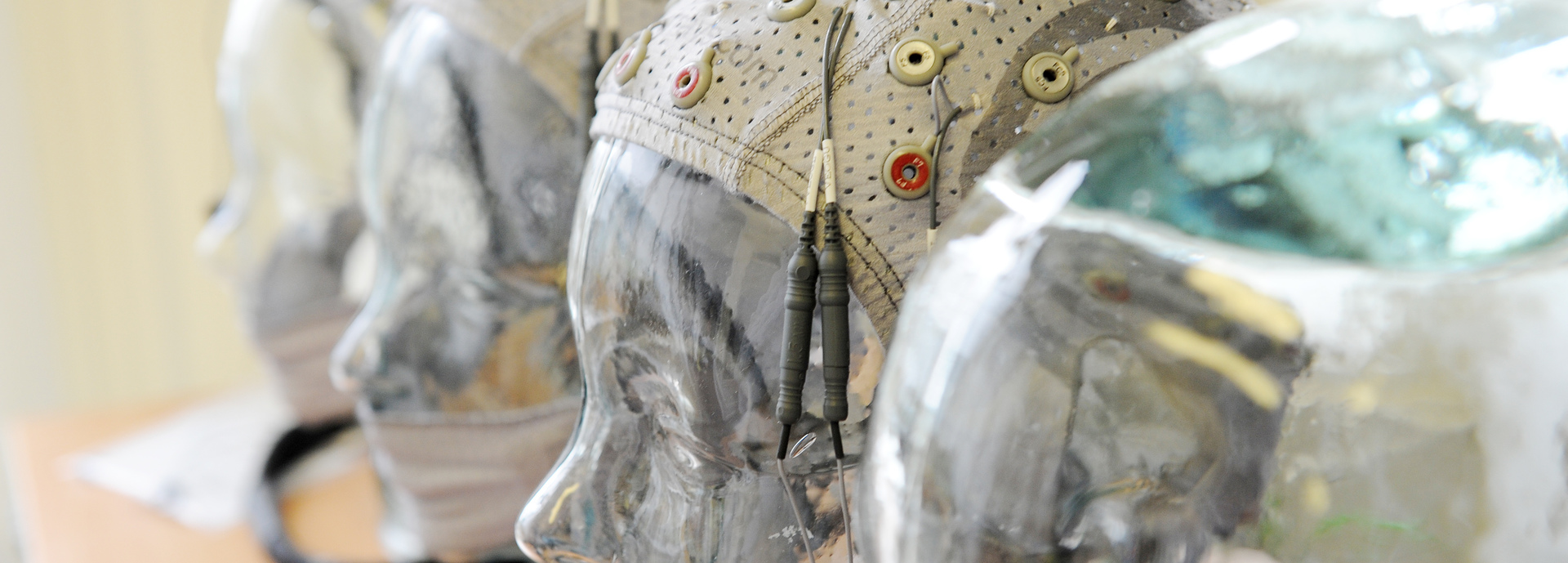About our psychology research
We foster original, world-class research addressing fundamental questions about the mind and behaviour. Our unique research strengths are face processing, behaviour change research, cognitive development and cultural evolution. Our aim is to deliver significant, tangible contributions to the field and to society.
Find out more about our research groups and PhD opportunities.

Research highlights
Our researchers have developed links with colleagues in Biological and Environmental Sciences to study cognition in bees.
The University’s Mobile Cognition programme has collaborated with colleagues in the Division of Sports Studies on a large-scale comparative study on aging in Scotland and South Africa.
We are investigating cognitive mechanisms that generate human cumulative culture, finding new evidence on how children acquire the capacity for imitation.
We are working with the National Centre for Replacement, Refinement and Reduction of Animals to work with industry partners to improve the welfare of animals used in scientific experiments.
An Academy of Medical Sciences-funded project is studying prospective memory in children with autism spectrum disorder.
We are researching how humans perceive depth, human-robot interactions, memories of faces, face recognition, spatial navigation and the development of machine learning of faces.
Research impact
Our research impact ranges from offenders to law-enforcement organisations, from robust athletes to those in poor health, from new-borns and infants to students of all ages, and from animals in captivity to custodians of wildlife.
Our researchers developed a facial composite imaging tool, EvoFit. This is currently being used by police forces in the UK, France and Austria.
We’ve helped improve the health and wellbeing of animals. Our research supported the European adoption of clear, evidence-based welfare and conservation policies for primates. Improved welfare for laboratory animals has resulted in improved scientific output and reduced costs to pharmaceutical companies.
Our work with colleagues in Sport Science was the first to show that repeated head impacts (football heading) let to decreases in memory performance and increases in the cortical silent period that follows transcranial magnetic stimulation. This has led to changes in the public’s perception of the safety of football heading, and changes in practice for youth.
We’ve worked with the Scottish Prison Service on the Paws for Progress initiative to monitor the psychological and behavioural effects on offenders who participate in an assistance dog training programme. Our research shows that human-animal interactions can improve the behaviour of young offenders. This has led to the uptake of this programme in two additional prisons, and the development of a similar programme in the Serbian Prison Service.
The Health Psychology Group has conducted pioneering work to improve uptake for the colorectal cancer screening programme. Two of the four interventions tested became part of the standard English Bowel Cancer Screening Programme materials and continue to be used with materials for the programme’s new test (Faecal Immunochemical Test).
Our work on understanding and overcoming barriers to organ donation is directly linked to the decision to introduce an opt-out system of organ donation in Scotland in Autumn 2021.
Our research applies evidence-based behaviour change interventions to upskill health professionals working in diabetes care. This was used by NHS Education for Scotland to develop a national MAP blended learning programme for health and social care staff which is currently being delivered in 11 of Scotland’s 14 health boards.
Psychology Kindergarten
One of the unique features of our research is our on-site Psychology Kindergarten. This facility is a superb resource for researching the development of cognition. Children can participate in numerous valuable research studies, and these provide enjoyment and learning opportunities beyond the standard early year’s curriculum.
The Kindergarten has been central to our research on language and non-verbal communication, social learning, cognitive development, and the neural basis of executive function. Our research also includes comparative studies of children with autistic spectrum disorders and developmental delay. We’ve also worked with colleagues from Social Sciences, Primary Education and the Dementia Centre on a new initiative focused on inter-generational research, for example bringing people with dementia together with children in the Kindergarten.
Partnerships and collaboration
We work with international researchers and partners around the world. Closer to home, we have collaborations with over 60 academic institutions in the UK.
Independent researchers
We offer a vibrant and supportive environment for independent research fellows working on any aspect within our research groups, and we are always keen to welcome new members.
